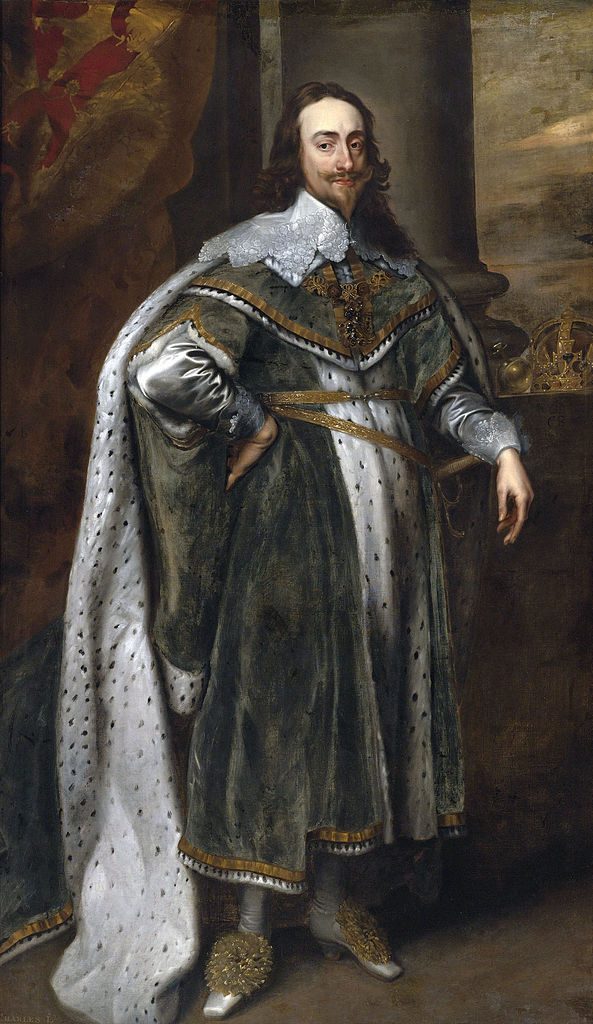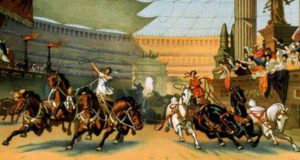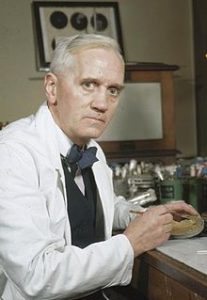“I do stand more for the liberty of my people, than any here that come to be my pretended judges…I am sworn to keep the peace, by that duty I owe to God and my country, and I will do it to the last breath of my body…”1. This was only a small part of Charles I speech defending his kingship. These were his departing words as he was sentenced to death for treason.
Charles I was born on November 19, 1600 in Dunfermline Castle, England. He was the second son of James I of England. In his early years, Charles did not speak very much and he developed a severe stammer in his speech. He also suffered from rickets disease that almost led to his early death. With the negligence of his parents and the constant harassment from his brother, Prince Henry, because of his deformities, Charles developed signs of personality disorder. He had a tendency to lie a lot at a young age, which is not uncommon among children. In Charles’ case, however, it would be considered a weakness for a king.2
On November 6, 1612, Prince Henry had unpredictably died from a typhoid fever, which left Charles I next in line to the throne. Surprisingly, he was not too keen on the idea, and was upset when his elder sister, Elizabeth, had married and left England. He had to take responsibility as the next heir, but with the death of his mother in March of 1617 and with his father’s, James I, irritation for his son, he did not develop self-confidence during his adolescents.3
In 1625, he took the thrown and became the second Stuart King of Great Britain. Throughout his reign, he dealt with many controversies and quarrels, especially with Parliament. After ruling for three years, King Charles conducted expeditions to Spain and then to France. These expeditions were degrading failures and financial catastrophes. They forced the King to ask Parliament to vote to increase taxes, but the body refused.4 The King still collected the taxes to pay for the expenses despite the disapproval. The Parliament and the King were mostly in disagreement throughout his reign. After the assassination of the chief minister, Buckingham, in 1629, the King dissolved the Parliament. This meant that for the next eleven years the King governed without a Parliament.5 Unfortunately, he managed to rev up governmental expenses so there was an increase in forced loans, tonnage, ship money, poundage, and other extraordinary financial measures.6
The King wanted to rule his own way, and he did not want his authority to be defied by anyone. However, his ignorance did more harm than good. By 1639, the King’s policies had created complications with Scotland. With his taxes being raised without Parliament’s approval, it made his subjects feel uneasy, but not enough to start a rebellion. However, there is another factor that will lead to a rebellion, and that was his religious policies.7 In 1637, King Charles introduced a new prayer book in Scotland. It did not go as well as he expected. Hundreds of thousands of Scots were in an uproar against the king. They even went so far as to sign a covenant (some even with their own blood), that vowed to fight for their old religion. The King saw this uproar as the people going against his monarchy. He vowed “I will rather die than yield to impertinent and damnable demands.”8
By 1641, Parliament did not trust the King with his army. Their fears became a reality when the King attempted to arrest five of Parliament’s leaders on the charges of treason. Upon the scare, Parliament took the initiative and began to rally their military force in order to defend themselves. Charles then called on his loyal subjects to defend his right to rule as he pleased. Thus, the civil war began.8
The civil war lasted for five years. Charles commanded the military of Wales and the North. With his generals, Charles was able to win some battles but not the war. Parliament proved its mastery when it came to gaining support, raising funds, and maintaining naval control and military response. On May 5, 1646, Charles gave himself up to the Scots, who were the allies of Parliament. He was handed over to Parliament, due to his refusal to accept Presbyterianism. He later escaped to the Isle of Wight, but was shortly imprisoned there. During this whole ordeal, Parliament passed an act of treason towards any other negotiations with Charles. At this point, his fate was sealed and there was no way for Charles to escape this time.10

On January 20, 1649, the trial of Charles I began in Westminster Hall. The king refused to plea guilty, still fighting for his right. He never believed that the court had the legal right to try a king. All throughout his life the king had suffered with his speech, but at his trial he was able to give the finest speech of his life. Unfortunately, the court would have none of it, and on January 27, 1649, it sentenced Charles I to death.
January 30, 1649 was the execution day for King Charles I. He was escorted onto a scaffold with crowds surrounding the platform in Whitehall, London. He began a prayer with Bishop Juxon. Moments after, his time had come. The executioner raised his ax and beheaded the King.
- Encyclopedia of World Biography, 2004, s.v. “Charles I.” ↵
- Encyclopedia of World Biography, 2004, s.v. “Charles I.” ↵
- Europe, 1450 to 1789: Encyclopedia of the Early Modern World, 2004, s.v. “Charles I (England) (1600-1649; ruled 1625-1649),” by Charles Carlton. ↵
- Europe, 1450 to 1789: Encyclopedia of the Early Modern World, 2004, s.v. “Charles I (England) (1600-1649; ruled 1625-1649),” by Charles Carlton. ↵
- Funk & Wagnalls New World Encyclopedia, 2016, s.v. “Charles I.” ↵
- Funk & Wagnalls New World Encyclopedia, 2016, s.v. “Charles I.” ↵
- Europe, 1450 to 1789: Encyclopedia of the Early Modern World, 2004, s.v. “Charles I (England) (1600-1649; ruled 1625-1649),” by Charles Carlton. ↵
- Europe, 1450 to 1789: Encyclopedia of the Early Modern World, 2004, s.v. “Charles I (England) (1600-1649; ruled 1625-1649),” by Charles Carlton. ↵
- Europe, 1450 to 1789: Encyclopedia of the Early Modern World, 2004, s.v. “Charles I (England) (1600-1649; ruled 1625-1649),” by Charles Carlton. ↵
- Europe, 1450 to 1789: Encyclopedia of the Early Modern World, 2004, s.v. “Charles I (England) (1600-1649; ruled 1625-1649),” by Charles Carlton. ↵



38 comments
Esperanza Rojas
This was a really well- written article. I loved the quote that was provided in the beginning, it gave a great perspective of the King, and the following sentence after made a very good hook for the story. The entire paragraph made me interested to read more instantly. The story itself sounded
very similar to King George VI and King Edward VIII story, for which George was in line for the throne but his brother chose his wife over the throne, therefore George took over. King Charles, however wasn’t as great, if anything he sounded very spoiled and felt that he was entitled to everything.
Sebastian Carnero
Having to rule a country when you knew you had 2 brothers that could do it and had the right to before he must have been quite a shock. The pressure of ruling a country plus the critics of his “anomalies” during his youth may have led to him not trusting in anyone. He is normally addressed in stories as a greedy and tyrant, but he had a rough childhood. I guess that’s history, there can not be a happy ending in every story.
Christopher Hohman
Nice article. Unfortunately for Charles his family just never quite understood England that well. They were so used to getting their own way in Scotland because of the differences in monarchical power there . Nobody questioned their authority there, but in England there was a whole different expectation of a monarch. A monarch that worked with parliament especially in budgetary matters was accepted as the norm in England. The Stuarts were to authoritarian for their own good, they simply did not understand English tradition of limiting monarchical power
Roman Olivera
In reading this article of King Charles I, I discovered a little more then the brief overview of his reign that I had heard in he past. It opened my eyes to the fact that the family did not ever set out to raise him up to be the future king, thus doing him a great disservice, by not showing him how he should lead. Though King Charles was not considered a great leader by many at the time, he did act for the people in his own eyes. During that era in history any religious disagreement to what is no know state based religion, or religion that is forced upon the people by higher governing bodies, would have been an area of great attack against the king which ultimately lead to his execution. He was not so far off in he thought that the people where being controlled by a system that they wanted no part of. This is proven by the any people that left that country to seek religious freedom. Though it did seem that he abused the power he was given over his subjects, we also see that Parliament was not innocent in the abuses of the power they held. All in all this article was very informative and opened my eyes to how great of a country we live in, and how regardless of its many flaws it’s still learning from mistakes made in the past by other great nations.
Samuel Ruiz
It is extremely evident that Kind Charles I had a very tough life. From his adolescent issues to his failures as a king, he did not have the easy life. It was interesting to read the civil war was actually started because a king and parliament, rather than people of the country. I honestly feel a little bad for him and his unfortunate life and death. Great Article
Noah Laing
Title of this article certainly peaked my interest as I wanted to see how it’d play out. I was pleased to see this was about King Charles I and his infamous downfall. Charles would ultimately be overcome with the drive to posses more power and argue with parliament over several issues leading to a civil war, which lead to his death.
Christopher King
This is a great story about King Charles. This is one of the historical figures I knew nothing about and this provided another example that they monarchy abused their powers over their subjects they ruled over. His childhood had a large impact on how his behaviors were as an adult. The fact that he did not want the throne would have told people he was not going to be a great ruler. Scotland had been suppressed by the English and the throne for hundreds of years so it does not surprise me that they would side with Parliment in order to keep what freedom they had.
Bryan Martin Patino
the article is really interesting i would have never guessed that king Charles had such a rough child hood. it must have been hard to grow up with being constantly being put down by his whole family. that must have been why he developed the personality disorder. but overall i don’t think that is any excuse and he did fail as a king even though he initially didn’t want it. Charles wasn’t fit to rule England they should have found someone else like an uncle or something.
Tyler Sleeter
Great article. While I had heard of the civil war between Scotland and England, I did not know much about it until reading this article. I like how the title of the article tells me what happened to King Charles I and I am able to read it wondering why this happened to him. I found it interesting that Charles I was the second son, meaning he should never have been king if things had been better for his brother. It always interests me when things like that happen and it changes the coarse of history. It is a shame that King Charles I could not reconcile his differences with Parliament and instead ended up creating a civil war that cost him his life.
Joshua Breard
I love the title of the article as it foreshadows his death for those who are not aware of Charles I. When it came to how he ran his kingdom, he really did not want to take the throne but when he did he became power hungry having the power consume who he was. He thus started to neglect those who were inferior to him and resulted in a slippery slope leading to his downfall. Definitely an enjoyable read!